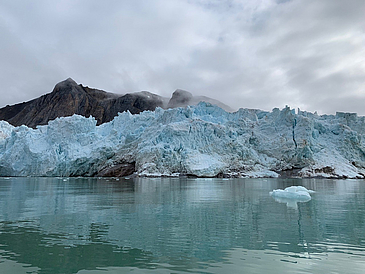The EU project FACE-IT (The Future of Arctic Coastal Ecosystems – Identifying Transitions in fjord systems and adjacent coastal areas) compares Arctic fjord systems. The core of the work is formed by various stages of the decrease in glacial impact and ocean ice in Greenland, Spitzbergen, and Finnmark in Norway.
Effects of Climate Change
“The effects of climate change can be seen much more quickly in the Arctic than anywhere else on Earth,” explains Professor Kai Bischof, Marine Botany Department within the Faculty of Biology / Chemistry at the University of Bremen. He is also head of the research network. “Climate-based changes, such as the increase in the sea level and the acidification of the oceans, put a strain on the Arctic ecosystems. Additionally, there is also fishing, tourism, and shipping.” The existential foundations of indigenous groups will be massively affected,
International Team from 8 Nations
FACE-IT brings together an interdisciplinary team of internationally renowned natural science and social science experts from eight nations. The project team is characterized by a strong connection to the indigenous people and other local players in the Arctic. This is intended to ensure that the knowledge and worries of these target groups are considered in the innovative management approaches for a sustainable future.
From November 2020, the project, which has a duration of four years, will provide the first large, systematic comparison of Arctic coastal areas. It will make a comprehensive understanding of changes to species diversity in the Arctic seas and the existential foundations for the human inhabitants of the Arctic possible.
Further Information:
https://www.uni-bremen.de/en/marbot
Contact:
Prof. Dr. Kai Bischof
Marine Botany
BreMarE – Bremen Marine Ecology Centre for research and Educations
Faculty of Biology / Chemistry
University of Bremen
Tel.: +49 421 218-63050
Email: kbischofprotect me ?!uni-bremenprotect me ?!.de

